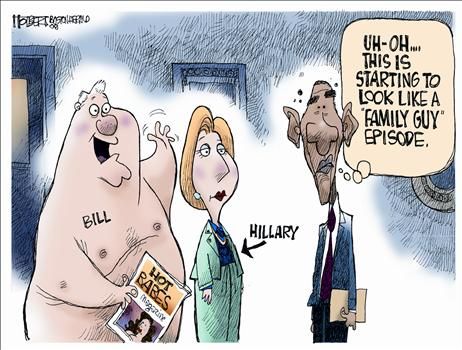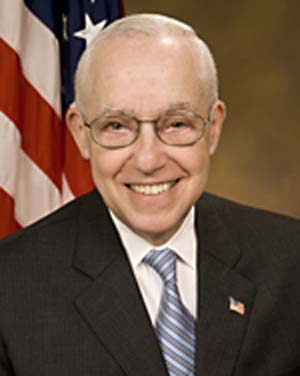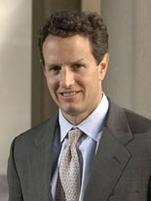Turbulence Ahead
Some things to be thankful for in depressing times.By PEGGY NOONAN
The hundred days are happening now. That's the real headline on President-elect Obama's series of news conferences and his announcements of intended administration policy, such as an economic stimulus package. We don't really have to wait till after the inauguration on Jan. 20 for the new administration to begin. What the Obama transition has become is historically unprecedented. He is filling the vacuum created by a collapsed incumbency and an acute economic crisis. He is moving forward with what looks like a high, if ad hoc, awareness of the delicacy of the situation. He can't seem presumptuous or aggressive: "We only have one president at a time." At the same time he can't hide. The White House exhibits chastened generosity, refusing to snipe, mock or attempt to undermine.
Mr. Obama's cabinet picks and other nominations suggest moderation, also maturity, and his treatment of Joe Lieberman shows forbearance and shrewdness. Politics is a game of addition, take the long view, don't throw anyone out as you try to hit 60. Most of all, leave Mr. Lieberman having to prove every day to the Democratic caucus that he really is a Democrat. There's nothing in being a maverick now. Mr. Obama's preternatural steadiness continues. It's been a while since anyone called him Bambi or compared him to the ambivalent, self-torturing Adlai Stevenson. For all of which—and for the cooperation of the Bush administration, whose desire to be of assistance in what used to be called the transition is classy and a good example—one can be thankful.
We can be thankful we had an election whose outcome was clear, not murky and a continuing trauma. It is good that 2008 was a seven-point win by someone, and not a 50-50 contest forced into resolution in the courts. Imagine what it would be like now, the general tone and feeling of the country, if at this moment we were arguing over hanging chads and bent ballots. I am thankful that more than half the country is, in at least one area, politics, happy, and that the 46% who voted the other way accepted the outcome as America always has, peacefully and with good-natured resentment. So many are hoping for the best, as if hoping for the best is a function or an expression of patriotism, which to a degree it is.
I am thankful for something we're not seeing. One of the weirdest, most perceptually jarring things about the economic crisis is that everything looks the same. We are told every day and in every news venue that we are in Great Depression II, that we are in a crisis, a cataclysm, a meltdown, the credit crunch from hell, that we will lose millions of jobs, and that the great abundance is over and may never return. Three great investment banks have fallen while a fourth totters, and the Dow Jones Industrial Average has fallen 31% in six months. And yet when you free yourself from media and go outside for a walk, everything looks . . . the same.
Everyone is dressed the same. Everyone looks as comfortable as they did three years ago, at the height of prosperity. The mall is still there, and people are still walking into the stores and daydreaming with half-full carts in aisle 3. Everyone's still overweight. (An evolutionary biologist will someday write a paper positing that the reason for the obesity epidemic of the past decade is that we were storing up food like squirrels and bears, driven by an unconscious anthropomorphic knowledge that a time of great want was coming. Yes, I know it will be idiotic.) But the point is: Nothing looks different.
In the Depression people sold apples on the street. They sold pencils. Angels with dirty faces wore coats too thin and short and shivered in line at the government surplus warehouse. There was the Dust Bowl, and the want of the cities. Captains of industry are said to have jumped from the skyscrapers of Wall Street. (Yes, those were the good old days. Just kidding!) People didn't have enough food.
They looked like a catastrophe was happening.
We do not. It's as if the news is full of floods but we haven't seen it rain.
I asked an economic expert a few weeks ago if a second Great Depression would come to look at all like that, like a catastrophe, and he said no, not at all. In 1930 we had no safety net. Unemployment benefits, food stamps, welfare, an interlocking system of city, state and federal services—these things will keep it from being so bad.
But in tough times we will surely expand unemployment benefits, and welfare, and food stamps and housing assistance, which will mean more and greatly accelerated spending, which will mean bigger and steeper deficits, and higher taxes, with the one feeding on the other, which may mean an economic death spiral comparable to, say, Britain in the decades after World War II, its economy mired and held down by government control and demands. It continued more than a quarter century, until the change of economic thinking encapsulated in the phrase "the Thatcher years." Is that what this will be?
Anyway it is odd, surreal, to have the steady downbeat of Great Depression II all over the news, and few signs of GDII on the street, odd that the news we're hearing is at odds with what our eyes are seeing, at least at the moment.
So where is GDII happening? Right now mostly in conversations between wives and husbands, in families and among friends, about selling, about digging in, about layoffs, and not taking chances, and reduced income, and fear.
As for what we see, in economic stories there's always a lag. New York in 1990 did not know it was in the midst of coming levels of affluence unseen in all of human history. The storefronts in my neighborhood at that time were tatty, tired. At some point in the next 10 years everything in the neighborhood was updated and started to gleam. There were bright new awnings on the shops, and the windows shining. Everything was washed clean by affluence. The food stores on Lexington Avenue offered more and more varied fruit for sale in thicker stacks outside. Even the dogs were suddenly more beautiful, handsome brushed brown Labs and stately golden retrievers.
I suppose as months and years pass it will all gleam less, with a steady falling off from perfection. It will roughen.
We've gotten through roughness before. Of things to be thankful for, I personally include this. I traveled this year, and when I fly I say a prayer that has become a ritual: "Dear God, put your big hands under this plane and lift it up, and carry it forward through the air untouched and unharmed by other objects. And may its inner workings work. And put us down softly in our place of destination, and return us safely to our homes, and to those in whose lives we are enmeshed."
It occurs to me that is perhaps how many of us are feeling about our country this Thanksgiving: Lord, thank you for our previous safety, and get us through this turbulence.
I close with a nod of small thanks for the title of a book I saw the other day called, "Are You There, Vodka? This is Chelsea." The stewardess was reading it on a flight from Phoenix to Newark. She was laughing. It was nice.
Labels: General information























